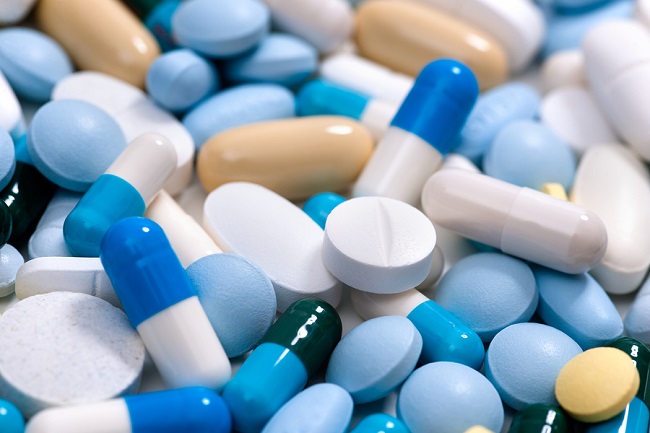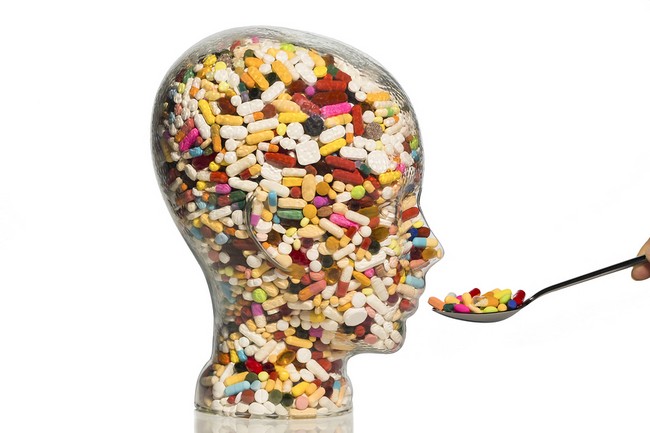- Make It Yourself Lavender Heart-Shaped Bath Bombs!
- 20 Things You Never Knew About “Down There”
- 12 Best Foods For Those Suffering From Arthritis Pain
- 12 Personal Hygiene Mistakes Almost Everyone Makes (Mom Never Told You About #4!)
- 15 Medicinal Plants And Herbs From The Cherokee People
- 12 Mind-Blowing Benefits Of Drinking Coconut Water During Pregnancy
- 12 Outstanding Winter Foods That Won’t Fatten You Up Like A Christmas Turkey
7 Shocking Reasons You Should Ditch Antibiotics

Photo credit: bigstock
If you think antibiotic resistance is something that happens to “other people”, think again. The misuse of antibiotics have increased the amount of drug resistant germs that plaque us today. MRSA, a drug resistant form of the bacteria called staphylococcus aureus, once a concern only for jail inmates and hospitals, but a newer form has spread to healthy people in the general community.
Since about 1940, antibiotics have been the gold method for treating bacterial infections. However, there have been several new reasons, besides the superbugs, that should raise concern about antibiotic use. You might be shocked at some of these revelations but keep reading and see the top 7 reasons you just might want to think twice before you fill that prescription.
1. Fungal/Bacterial Overgrowths
The problem with antibiotics is that they kill everything, good and bad bacteria. This can lead you open to yeast and other bacterial infections. When fungal or bacterial infections are allowed to grow, they emanate endotoxins, which inhibit your immune system. In essence, they cut off communication pathways between your immune system and your cells. Immune cells don’t attack intruders because they aren’t getting the signals. You need a healthy gut flora to help restore that communication.
2. Chronic Fatigue Syndrome
Chronic fatigue syndrome, and other chronic viral illnesses, has been linked to repeated antibiotic use. Find out more reasons that bring on chronic stress.
3. Mutants
No, not mutants like that science fiction movie you watched last night, but mutant bacteria. Back in 1947, when penicillin began to be mass produced, the first bacterium that was resistant to these antibiotics was quickly found, staphylococcus aureus. Even when antibiotics are used properly, they can create these mutant forms.
In fact, this mutant form of bacteria, S. aureus are found in the greatest number in countries that have the highest antibiotic use. As of 2009, Norway was the country with the lowest rate of mutant bacteria in the world. Why is this? 30 or so years ago, Norway made an important decision to only provide their citizens with antibiotics when absolutely necessary.
Mutant bacteria, sure to be a movie of the week before too long.
Continue to Page 2

Photo credit: bigstock
4. Weakens your immune system
If you allow your immune system to deal with invaders as they arise, without antibiotics, then it creates a memory, if you will, of which antibodies to use against which types of infections, or any infections that are similar to it. This way, your body can fight off the next attack more easily because it already has some ammunition stored in your immune system.
Antibiotics kill our immune system because it does the fighting for us. Foreign invaders are becoming stronger and our immune systems are in less than fighting condition since we don’t give them a chance to do any battle. Find out how to improve your digestive health after antibiotics.
5. Recurring Infections
There is a great deal of research to show that those who take antibiotics have more frequent infections later on than those who refrain from antibiotics. A perfect example of this are children who are given antibiotics for ear infections often find that these infections return again and again.
SEE ALSO: Why Antibiotics Are Bad News for Your Health
6. AIDS
Research suggests that one big risk factor for AIDS is a compromised immune system, which can be due to a repeated use of antibiotics. It’s no surprise that the group with the highest levels of antibiotic use also have the highest incidences of AIDS within America.
7. Cancer Risks
According to the BMJ, those who had taken 6 or more antibiotic treatments had a 1.5 increased risk of developing rare or less common cancers when compared to those who had the fewest exposures to antibiotics. A study done in Finland in 2002 also found that an increased risk of breast cancer amount those with high antibiotic exposures. Another study performed by the International Journal of Cancer in 2008 showed that those who had taken between 2 and 5 antibiotic treatments had as much as a 27percent increase in cancer compared to those who had never taken antibiotics. In fact, those persons who had completed 6 or more treatments had a 37 percent increase in their overall cancer risk.
Although sometimes antibiotics are necessary to save your life, remember that most times they aren’t necessary, and can even be dangerous. It’s in your best interest to avoid antibiotics unless you absolutely have no other alternative.
Sources:
MRSA: Methicillin-resistant Staphylococcus aureus. Alliance for the Prudent Use of Antibiotics
Antibiotic resistance: Questions and answers. Centers for Disease Control and Prevention
Facts about antibiotic resistance. Centers for Disease Control and Prevention
Antibiotic safety. Association for Professionals in Infection Control and Epidemiology
Antibiotic resistance and the threat to public health. Centers for Disease Control and Prevention
Delivering safe care for patients. Centers for Disease Control and Prevention
(By the way, if you’re enjoying this article, you may want to subscribe to the Naturalon’s free newsletter; get breaking news alerts on GMO’s, fluoride, superfoods, natural cures and more… You privacy is protected. Unsubscribe at any time.)

































